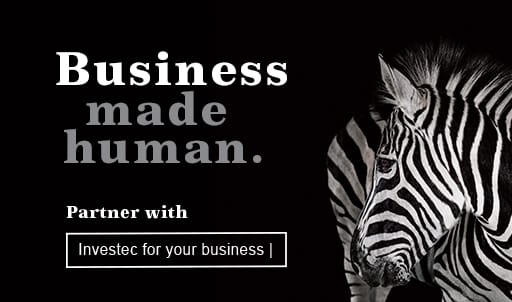FT: Obviously, we have to make sure that our education in this country improves dramatically, because if we do not do that technology or the lack of understanding of technology will be a competitive disadvantage as we go forward.
KR: So, if I look at where we are today in South Africa, technology is coming whether we like it or not, there's going to be AI, there's going to be machine learning, there's going to be things that change. So, if I was a government in South Africa today, I'd be looking at education, particularly, and we've all spoken about it and all mentioned it and focus particularly on Maths and Science.
RB: Yeah. I couldn't agree more on the education front despite being a somebody who left school at 15.
We've got a lovely place in Franschhoek and, and we went into the area that was not so lovely in Franschhoek and we visited four schools and you know the first class we went into all the kids were sitting on the floor, they couldn't afford a seat.
I think if you live in an area or if you have a business in an area, you really have to draw a circle around your business and then you have to make sure that the schools, the clinics and all aspects, you care for and then those circles will start overlapping and you can start working with neighbouring businesses to lift up the local community.
This will ultimately be in the business's interest because you know if you can lift people's standards, then they're likely to use your products more. So, my very strong feeling is governments are not perfect, pretty well anywhere in the world, and business has really got to step in.
EWS: I think disruption is the key word here. And I think it's how do we re-imagine education? I think, you know, for me the future of education is our living rooms, our kitchens, it's our co-working spaces, because we need to use technology to keep learning and you sitting in front of a blackboard or whiteboard anything like that, that's education today and it's not working for us.
So, you're thinking about how you do education out of the ordinary, actually, it's being able to beam education into everybody's homes and everybody's offices. So for me, the first step I would do is I would invest in the telecoms and bring 5G, globally. You’re supporting what a number of companies are doing to provide
that around the world, because that to me is at the heart of how we provide a skills population for the world that we are creating.
RB: Just going back to what you said, Maths and what did you say Science? Yeah, so I would have left school at 14 if Maths had been the number one thing at school, you know, so I mean obviously, look there's 10% of the population where Maths and Science, you know, they're cut out for it, and that's fantastic, they should have the best Math and Science education there is.
But for the vast majority of kids at school, you use the words re-imagining education. I couldn't agree with you more, we need to try to make school a place that people enjoy, where they learn about the real things that are going on in life, you know, where they can be in touch with nature, in touch with environment, you know, a whole lot of different areas.
And also, where you can bring out the individual kid's passions, and so if it is Maths and Science, you know, you should go for that. But if not, I think that for the other 90% they.... we should be allowed to do other things.
KR: I think slightly differently again. I think everyone can learn Maths and Science. I think it's about the quality of the teachers.
RB: It depends. I think it does depend what you're going to do with your life. I mean, I didn't know the difference between net and gross until I was 50 years old. I'm dyslexic, and yet we managed to build quite a big group of companies. I thought the gross was my profit and the net was my turnover, so it wasn't great news when I finally discovered about it.
I was taught to add up, subtract and multiply, now that didn't need to take me 10 years at school to learn those things and for my profession as long as I can add up, subtract and multiply and divide maybe but you know, I'd prefer to multiply.
You know as an entrepreneur you don't need to have spent eight, ten years becoming a Maths expert, if you're going to be a mathematician or a scientist then okay.
FT: Yeah, I just wanted to say that having taught mathematics at University, I do agree.
I do agree that we complicate studying a lot. I think in the new age that we've got to make technology more accessible and use the power of the internet to connect people. I think demystifying on the one hand mathematics, demystifying on the other technology and things like coding is really important, the mindset change.



